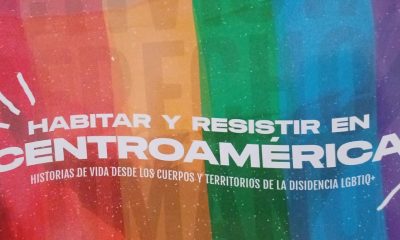Local
Casa Ruby brings its mission to El Salvador
Ruby Corado fled country’s civil war more than 30 years ago
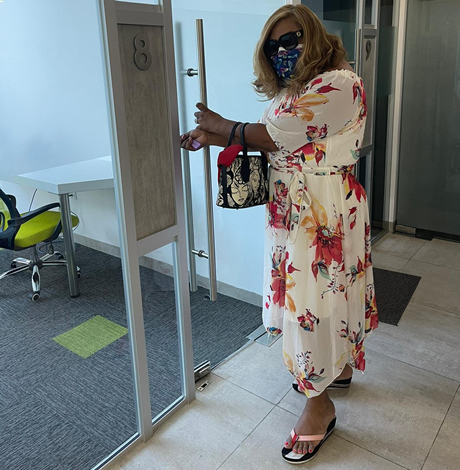
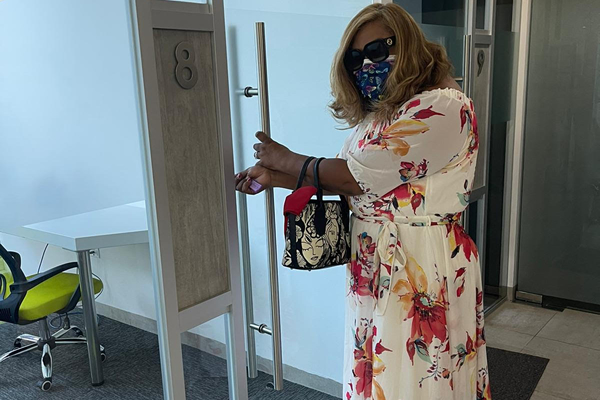
SAN SALVADOR, El Salvador — A Salvadoran woman who fled the civil war arrived in D.C. full of dreams and challenges, and after years of effort she and a group of friends founded Casa Ruby in order to provide services and social programs to vulnerable LGBTQ people. This is part of the story of Ruby Corado, a transgender woman and human rights activist who has undertaken the challenge of bringing Casa Ruby to the country in which she was born.
Corado, in her words, is “a Salvadoran who migrated, but a part of her stayed here.” She, upon hearing the stories of many LGBTQ people who migrated and others she has met who still live in El Salvador, said she felt the desire to fight for bringing those dreams and challenges to her homeland.
“Our work at Casa Ruby is to avoid suffering and (to offer) support through alliances, that is why we aim to share the programs for migrants that work in Washington because we have seen that they work,” Corado told the Washington Blade on March 18 during an interview from Casa Ruby’s new office in San Salvador, the Salvadoran capital. “We will do a little more work here in El Salvador so that the LGBTQ community has greater access to these opportunities.”
The commitment to solidarity that she has shown over the years is Corado’s best letter of introduction, which has led her to support global LGBTQ rights group that include the Latin American and Caribbean Network of Trans People (REDLACTRANS). Corado, through this work, has also realized the LGBTQ community needs a platform with programs that meet existing needs.
“I want to ensure that this new administration in the United States has a direct link from Washington to the global LGBT movement and as a trans woman, migrant, living with HIV and living in vulnerability, I want to be that voice with those international organizations that are disconnected from this reality,” says Corado, referring to international organizations based in El Salvador.
Casa Ruby’s main goals in El Salvador are to work for the LGBTQ community and support LGBTQ activists. Corado said Casa Ruby will not impose upon anyone its way of working, and their projects will aim to address present needs.
“My great project in El Salvador is a home to support displaced people,” Corado told the Blade as she smiled. “It will be a space for 15 people to start with.”
Casa Ruby in El Salvador will not only benefit vulnerable LGBTQ people, but LGBTQ people from other countries who need help.
The “Opportunity Project” will provide 25 vulnerable LGBTQ people with access to a scholarship for two years, a stipend and access to resources that will give them the tools they can use to build a better future.
“Something very important that I want to mention is that my father gave me the house to start Casa Ruby in El Salvador,” said Corado, adding she is grateful for the opportunity to be able to open the house to the community that needs help.
Corado said she hopes those who participate in the project will not be forced to flee El Salvador as she had to do in the past.
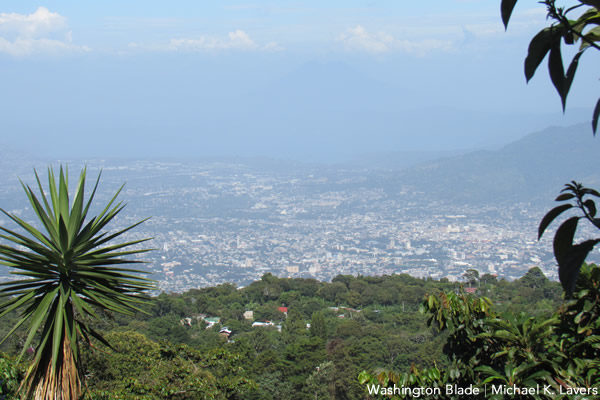
Corado, as director and founder of Casa Ruby, has empowered an entire LGBTQ movement in D.C.
Her team will be in charge of Casa Ruby’s operations in the nation’s capital. Corado will oversee both projects as she travels between the U.S. and El Salvador, and she will have a team in place in San Salvador that will include a communications coordinator who prefers to remain anonymous. Saul Palacios will work as director of operations and Ámbar Alfaro will be Casa Ruby’s director of programs and community outreach coordinator.
“Something we have in common with Ruby is that we share that way of dreaming and wanting to work from the community side,” Alfaro told the Blade. “It is something that has not happened in El Salvador because of different circumstances.”
“The fact that Casa Ruby is now in El Salvador with that model of working with the people and for the people is super important to me and makes me very happy to be able to continue here the legacy that Ruby has built and now has brought to her country,” added Alfaro, who also stressed Corado knows the reality through which the community in the country is currently living. “We have to work for our population in an orderly manner and with resources, with desire and conviction. This, above anything else, is what will always motivate us.”
“You have to have a heart and love your LGBTQ community to work at Casa Ruby,” Alfaro told the Blade. “And I saw that in her.”
Casa Ruby officially opened its San Salvador office on March 15, and has already begun to have meetings with both civil society and government representatives.
“We have already met with the National Youth Institute (INJUVE) to coordinate possible joint projects,” Corado said, enthusiastically. “They welcomed me to the country and for that I’m very happy.”
“We can build together as Salvadorans,” she added. “I do not expect everyone to receive me with open arms, but I guarantee that their voices will be present on the platforms that I have,”
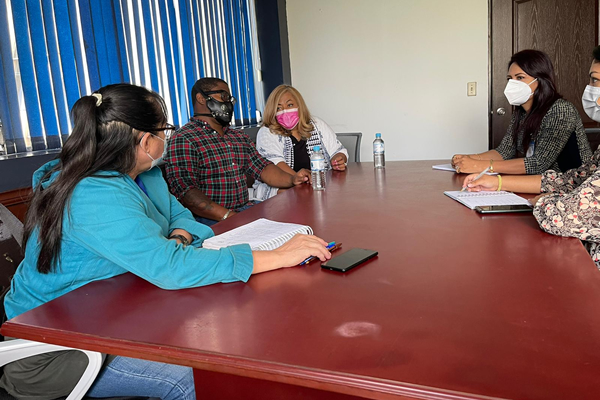
Corado, with tears in her eyes, told the Blade that being part of this project in El Salvador brings her full circle.
“It has been 31 years since I fled my country, and I am now here to give my love and support to my entire community that needs it,” she said.
Casa Ruby’s team in San Salvador plans to begin working within the next 90 days on the launch of a community project that will deliver scholarships to 10 Salvadoran LGBTQ organizations and another initiative that will provide highly vulnerable people with a way to support themselves. Casa Ruby also plans to begin a campaign to stop violence against LGBTQ children and open a shelter for LGBTQ people who need support.
This shelter is Casa Ruby’s flagship project. Another initiative to support vulnerable LGBTQ older adults is also in the works.
The Blade has published a version of this article in Spanish.
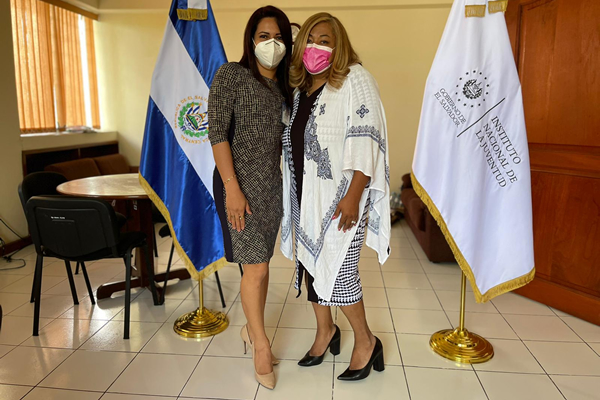
Virginia
McPike wins special election for Va. House of Delegates
Gay Alexandria City Council member becomes 8th LGBTQ member of legislature

Gay Alexandria City Council member Kirk McPike emerged as the decisive winner in a Feb. 10 special election for a seat in the Virginia House of Delegates representing Alexandria.
McPike, a Democrat, received 81.5 percent of the vote in his race against Republican Mason Butler, according to the local publication ALX Now.
He first won election to the Alexandria Council in 2021. He will be filling the House of Delegates seat being vacated by Del. Elizabeth Bennett-Parker (D-Alexandria), who won in another Feb. 10 special election for the Virginia State Senate seat being vacated by gay Sen. Adam Ebbin (D-Alexandria).
Ebbin is resigning from his Senate next week to take a position with Virginia Gov. Abigail Spanberger’s administration.
Upon taking his 5th District seat in the House of Delegate, McPike will become the eighth out LGBTQ member of the Virginia General Assembly. Among those he will be joining is Sen. Danica Roem (D-Manassas), who became the Virginia Legislature’s first transgender member when she won election to the House of Delegates in 2017 before being elected to the Senate in 2023.
“I look forward to continuing to work to address our housing crisis, the challenge of climate change, and the damaging impacts of the Trump administration on the immigrant families, LGBTQ+ Virginians, and federal employees who call Alexandria home,” McPike said in a statement after winning the Democratic nomination for the seat in a special primary held on Jan. 20.
McPike, a longtime LGBTQ rights advocate, has served for the past 13 years as chief of staff for gay U.S. Rep. Mark Takano (D-Calif.) and has remained in that position during his tenure on the Alexandria Council. He said he will resign from that position before taking office in the House of Delegates.
Local
Local LGBTQ groups, activists to commemorate Black History Month
Rayceen Pendarvis to moderate Dupont Underground panel on Sunday
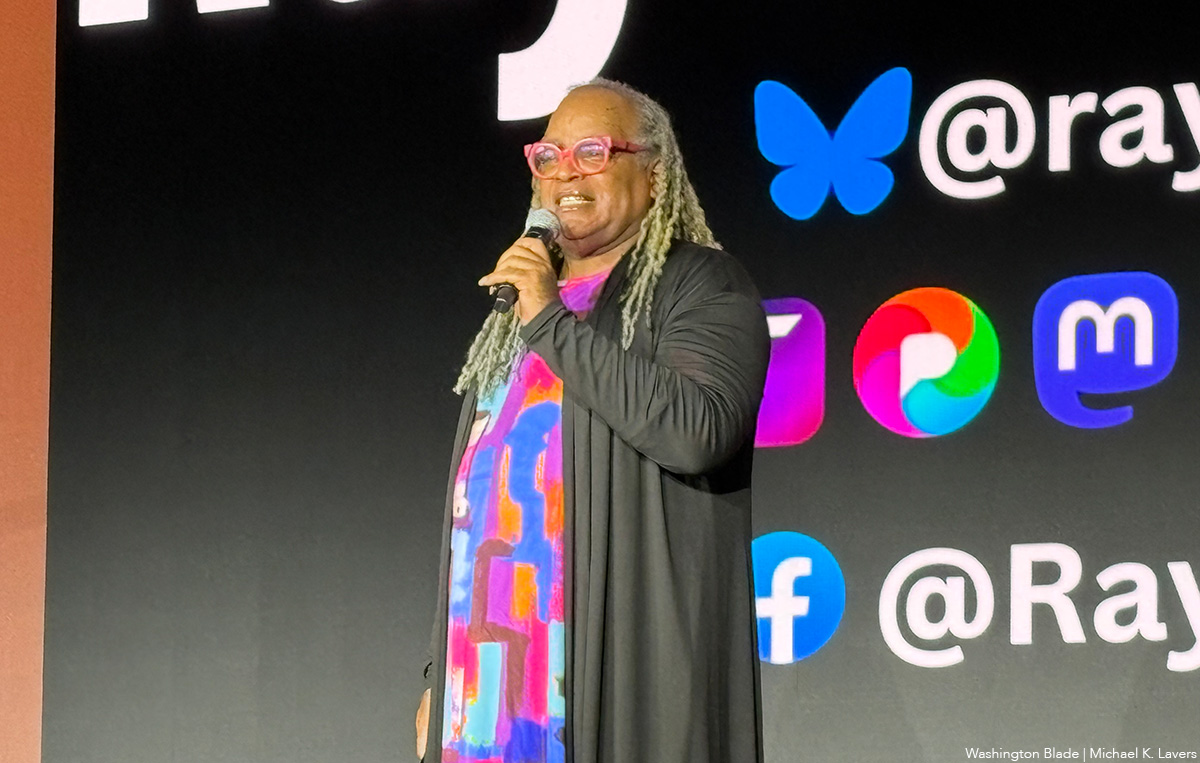
LGBTQ groups in D.C. and elsewhere plan to use Black History Month as an opportunity to commemorate and celebrate Black lives and experiences.
Team Rayceen Productions has no specific events planned, but co-founder Rayceen Pendarvis will attend many functions around D.C. this month.
Pendarvis, a longtime voice in the LGBTQ community in D.C. moderated a panel at Dupont Underground on Feb. 8. The event, “Every (Body) Wants to Be a Showgirl,” will feature art from Black burlesque artists from around the country. Pendarvis on Feb. 23 will attend the showing of multimedia play at the Lincoln Theatre that commemorates the life of James Baldwin.
Equality Virginia plans to prioritize Black voices through a weekly online series, and community-based story telling. The online digital series will center Black LGBTQ voices, specifically trailblazers and activists, and contemporary Black queer and transgender people.
Narissa Rahaman, Equality Virginia’s executive director, stressed the importance of the Black queer community to the overall Pride movement, and said “Equality Virginia is proud to center those voices in our work this month and beyond.”
The Capital Pride Alliance, which hosts Pride events in D.C., has an alliance with the Center for Black Equity, which brings Black Pride to D.C. over Memorial Day weekend. The National LGBTQ Task Force has no specific Black History Month events planned, but plans to participate in online collaborations.
Cathy Renna, the Task Force’s director of communications, told the Washington Blade the organization remains committed to uplifting Black voices. “Our priority is keeping this at the forefront everyday,” she said.
The D.C. LGBTQ+ Community Center is also hosting a series of Black History Month events.
The D.C. Public Library earlier this year launched “Freedom and Resistance,” an exhibition that celebrates Black History Month and Martin Luther King Jr. It will remain on display until the middle of March at the Martin Luther King Jr. Memorial Library at 901 G St., N.W.
District of Columbia
U.S. Attorney’s Office drops hate crime charge in anti-gay assault
Case remains under investigation and ‘further charges’ could come

D.C. police announced on Feb. 9 that they had arrested two days earlier on Feb. 7 a Germantown, Md., man on a charge of simple assault with a hate crime designation after the man allegedly assaulted a gay man at 14th and Q Streets, N.W., while using “homophobic slurs.”
But D.C. Superior Court records show that prosecutors with the Office of the U.S. Attorney for D.C., which prosecutes D.C. violent crime cases, charged the arrested man only with simple assault without a hate crime designation.
In response to a request by the Washington Blade for the reason why the hate crime designation was dropped, a spokesperson for the U.S. Attorney’s office provided this response: “We continue to investigate this matter and make no mistake: should the evidence call for further charges, we will not hesitate to charge them.”
In a statement announcing the arrest in this case, D.C. police stated, “On Saturday, February 7, 2026, at approximately 7:45 p.m. the victim and suspect were in the 1500 block of 14th Street, Northwest. The suspect requested a ‘high five’ from the victim. The victim declined and continued walking,” the statement says.
“The suspect assaulted the victim and used homophobic slurs,” the police statement continues. “The suspect was apprehended by responding officers.”
It adds that 26-year-old Dean Edmundson of Germantown, Md. “was arrested and charged with Simple Assault (Hate/Bias).” The statement also adds, “A designation as a hate crime by MPD does not mean that prosecutors will prosecute it as a hate crime.”
Under D.C.’s Bias Related Crime Act of 1989, penalties for crimes motivated by prejudice against individuals based on race, religion, sexual orientation, gender identity, disability, and homelessness can be enhanced by a court upon conviction by one and a half times greater than the penalty of the underlying crime.
Prosecutors in the past both in D.C. and other states have said they sometimes decide not to include a hate crime designation in assault cases if they don’t think the evidence is sufficient to obtain a conviction by a jury. In some instances, prosecutors have said they were concerned that a skeptical jury might decide to find a defendant not guilty of the underlying assault charge if they did not believe a motive of hate was involved.
A more detailed arrest affidavit filed by D.C. police in Superior Court appears to support the charge of a hate crime designation.
“The victim stated that they refused to High-Five Defendant Edmondson, which, upon that happening, Defendant Edmondson started walking behind both the victim and witness, calling the victim, “bald, ugly, and gay,” the arrest affidavit states.
“The victim stated that upon being called that, Defendant Edmundson pushed the victim with both hands, shoving them, causing the victim to feel the force of the push,” the affidavit continues. “The victim stated that they felt offended and that they were also gay,” it says.
-

 Virginia3 days ago
Virginia3 days agoMcPike wins special election for Va. House of Delegates
-

 New York5 days ago
New York5 days agoPride flag removed from Stonewall Monument as Trump targets LGBTQ landmarks
-

 Florida5 days ago
Florida5 days agoDisney’s Gay Days ‘has not been canceled’ despite political challenges
-

 Philippines5 days ago
Philippines5 days agoPhilippines Supreme Court rules same-sex couples can co-own property

